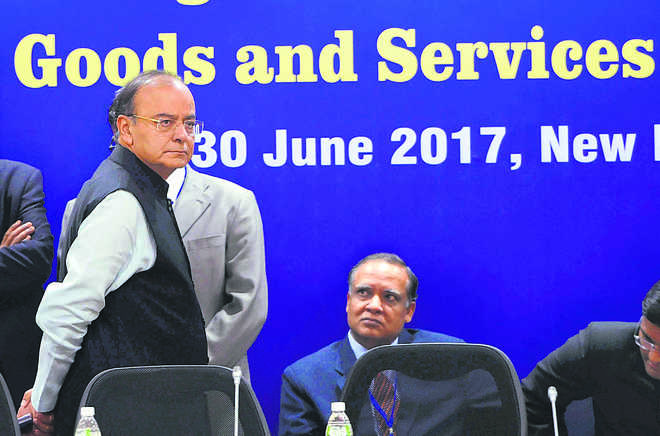
Deepanshu Mohan
Recent empirical evidence cited about the scale of economic disruptions caused by policies of demonetisation and Goods and Services Tax (GST) across India signals a structural, rudimentary problem with the craft of economic policymaking in India that is especially relevant for contemporary times. The problem stems from not only using a centralised, unilateral approach to public policymaking but also one that seems to be consequentially-independent of the outcomes surfacing from the policy's own implementation cycle. This fare-thee-forward approach to public policymaking is apparent from the current state of policy implementation scenarios from the cases of demonetsation and GST.
2 cases of policies suffering the implementation curse
Demonetisation: The efficacy of demonetisation in combating corruption and the scourge of black money was probed from the date of the policy announcement itself. From what we learn today, the policy of demonetisation (ie banning the use of old Rs 500 and Rs 1000 from the overall money circulation) impacted no more than 1% of the black money wealth, which is held in a variety of forms (ie in areas of real estate etc).
The policy, in its very design failed to accommodate the various administrative, agency-centered challenges associated with the administrative cost imposed in introducing and distributing new currency denominations by the RBI; accepting old deposits of Rs 500 and Rs 1000 by commercial banks (amongst other disparately located local institutions); ensuring tax compliance from identified tax evaders and avoiders; digitising cash-based transactions through a centralised system etc.
Further, the economic disruption caused across both the organised and unorganised sectors across India slowed the economic growth level substantially, resulting in a gross loss of economic livelihoods for many communities.
GST: Similarly, in the case of Goods and Services Tax, administrative processes or agency considerations involved in periodic filing of tax returns for small- and medium-scale enterprises; ensuring an ease in an indirect tax compliant payment system; setting up of training or awareness centres for providing procedural guidelines to existing small and medium-scale businesses on multiple GST tax slabs etc. were hardly factored in before implementing the tax reform. As a result, the implementation of GST (since July) prompted substantial economic muddle and disruption, particularly amongst the small- and medium-scale entrepreneurs. With its complex tax structure (ie including four tax slabs ranging from 5% to 28%), businesses are confused about how to effectively price their products. For example, the airlines seem to be unsure on whether to price premium economy seats as economy or business class, ie at the rate of 5% or 12%. This way, firms are likely to over or under charge their products which will result in misaligned economic incentives, affecting the efficiency of production and distribution. The only positive effect seen from the GST's short-run implementation cycle so far relates to an increased tax inspector-led vigilance across sectors and states which has allowed more indirect tax revenue money to be collected. One can argue that this higher rate of tax compliance through increased tax vigilance could have been possible under a VAT- or CENVAT-driven indirect tax system as well just by limiting or eliminating the cesses, surcharges etc. thus, without further thwarting the indirect tax system as a whole.
The writer is Asst Prof of economics in OP Jindal Global University
Fare thee well or fare thee forward?
- A fare thee well or consequentially-sensitive approach to public policy making accommodates a process of ascertaining both, a set of culmination outcomes (ie representing only the final outcomes seen without taking any note of the administrative process of getting there) and a set of comprehensive outcomes (ie taking note of the agency-led administrative processes through which the culmination outcomes come about). Any good public policy, in its design is observed or seen to be taking take such a method.
- A fare thee forward or consequentially-independent approach in policymaking may seem to be concerned with neither of these two outcomes (ie culmination or comprehensive). A badly designed policy is seen to take such an approach, in order to maximise economic efficiency while imposing high social costs, resulting in market failure. The implementation cycles of demonetisation and GST reflects a blind quest to maximise growth capacities in a short span while taking a benign, indifferent outlook towards those responsible in implementing the cycle (ie the agency or the administrative body) and those directly affected by the policy (ie the people or recipients concerned).
Conclusion
A consequence-sensitive approach to policymaking warrants the agency of the state to consider the instrumental processes involved in implementing the policy and the likely outcomes culminating from its final execution. The craft of policymaking in India must align economic incentives in a way that allows the agency and the people to work in a mutually cooperative way and collectively share the benefits that accrue.



























